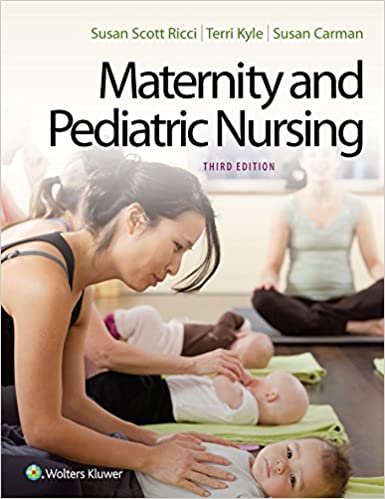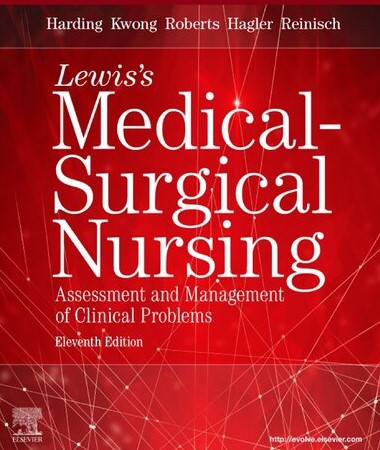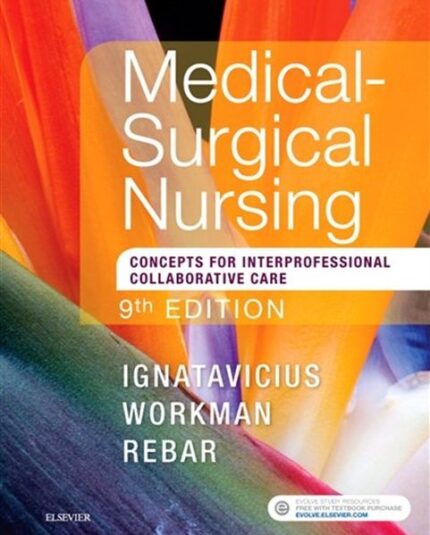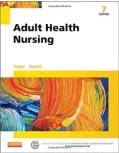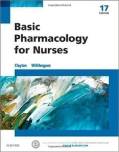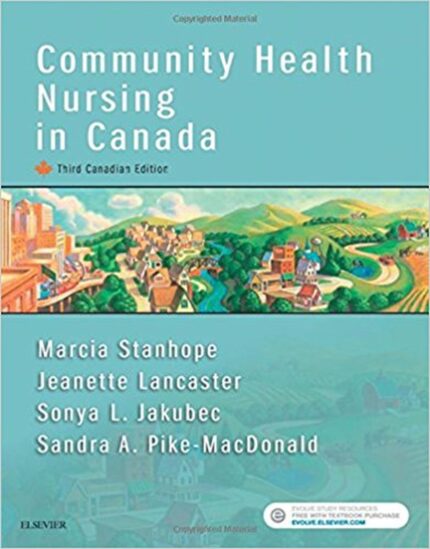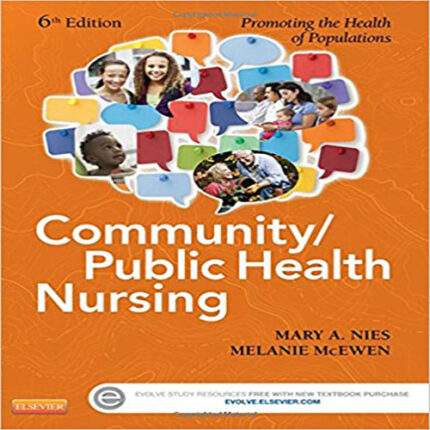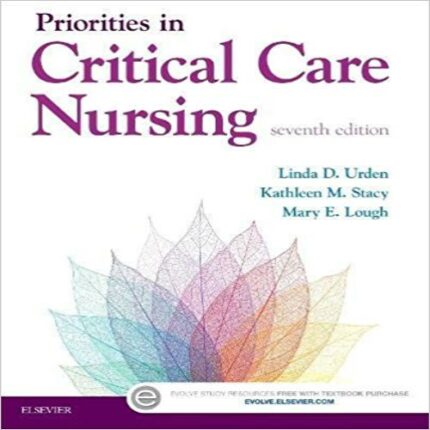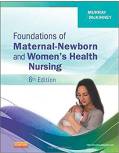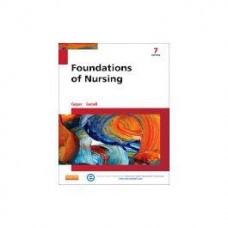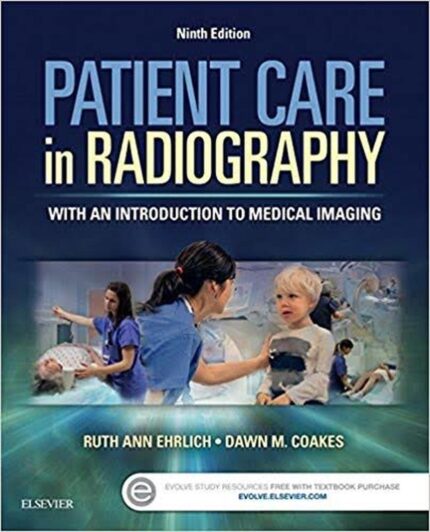Test Bank Maternity And Pediatric Nursing 3rd Edition
Chapter 1- Perspectives on Maternal, Newborn, and Women’s Health Care
Maternity and Pediatric Nursing – Third Edition
1. The United States ranks 50th in the world for maternal mortality and 41st among
industrialized nations for infant mortality rate. When developing programs to assist in decreasing
these rates, which factor would most likely need to be addressed as having the greatest impact?
A) Resolving all language and cultural differences
B) Assuring early and adequate prenatal care
C) Providing more extensive women’s shelters
D) Encouraging all women to eat a balanced diet
2. When integrating the principles of family-centered care, the nurse would include which of the
following?
A) Childbirth is viewed as a procedural event
B) Families are unable to make informed choices
C) Childbirth results in changes in relationships
D) Families require little information to make appropriate decisions
3. When preparing a teaching plan for a group of first-time pregnant women, the nurse expects to
review how maternity care has changed over the years. Which of the following would the nurse
include when discussing events of the 20th century?
A) Epidemics of puerperal fever
B) Performance of the first cesarean birth
C) Development of the x-ray to assess pelvic size
D) Creation of free-standing birth centers
4. After teaching a group of students about pregnancy-related mortality, the instructor determines
that additional teaching is needed when the students identify which condition as a leading cause?
A) Hemorrhage
B) Embolism
C) Obstructed labor
D) Infection
5. The nurse is working with a group of community health members to develop a plan to address
the special health needs of women. Which of the following conditions would the group address
as the major problem?
A) Smoking
B) Heart disease
C) Diabetes
D) CancerPrime yourself for your Tests – Study Questions
6. When assessing a family for possible barriers to health care, the nurse would consider which
factor to be most important?
A) Language
B) Health care workers’ attitudes
C) Transportation
D) Finances
7. After teaching a group of nursing students about the issue of informed consent. Which of the
following, if identified by the student, would indicate an understanding of a violation of
informed consent?
A) Performing a procedure on a 15-year-old without consent
B) Serving as a witness to the signature process
C) Asking whether the client understands what she is signing
D) Getting verbal consent over the phone for emergency procedures
8. The nurse is trying to get consent to care for an 11-year-old boy with diabetic ketoacidosis.
His parents are out of town on vacation, and the child is staying with a neighbor. Which action
would be the priority?
A) Getting telephone consent with two people listening to the verbal consent
B) Providing emergency care without parental consent
C) Contacting the child’s aunt or uncle to obtain their consent
D) Advocating for termination of parental rights for this situation
9. After teaching nursing students about the basic concepts of family-centered care, the instructor
determines that the teaching was successful when the students state which of the following?
A) “Childbirth affects the entire family, and relationships will change.”
B) “Families are not capable of making health care decisions for themselves.”
C) “Mothers are the family members affected by childbirth.”
D) “Childbirth is a medical procedure.”
10. A nursing instructor is preparing a class discussion on the trends in health care and health
care delivery over the past several centuries. When discussing the changes during the past
century, which of the following would the instructor be least likely to include?
A) Disease prevention
B) Health promotion
C) Wellness
D) Analysis of morbidity and mortality
11. A nurse is assigned to care for an Asian American client. The nurse develops a plan of care
with the understanding that based on this client’s cultural background, the client most likely
views illness as which of the following?
A) Caused by supernatural forces.
B) A punishment for sins.
C) Due to spirits or demons.
D) From an imbalance of yin and yangPrime yourself for your Tests – Study Questions
12. A nurse is developing a plan of care for a woman to ensure continuity of care during
pregnancy, labor, and childbirth. Which of the following would be most important for the nurse
to incorporate into that plan?
A) Adhering to strict, specific routines
B) Involving a pediatric physician
C) Educating the client about the importance of a support person
D) Assigning several nurses as a support team
13. A nursing instructor is preparing a class discussion on case management in maternal and
newborn health care. Which of the following would the instructor include as a key component?
Select all that apply.
A) Advocacy
B) Coordination
C) Communication
D) Resource management
E) Event managed care
14. After teaching a group of students about the concept of maternal mortality, the instructor
determines that additional teaching is needed when the students state which of the following?
A) “The rate includes accidental causes for deaths.”
B) “It addresses pregnancy-related causes.”
C) “The duration of the pregnancy is not a concern.”
D) “The time frame is typically for a specified year.”
15. A group of students are reviewing the historical aspects about childbirth. The students
demonstrate understanding of the information when they identify the use of twilight sleep as a
key event during which time frame?
A) 1700s
B) 1800s
C) 1900s
D) 2000s
16. A nurse is providing care to a woman who has just delivered a healthy newborn. Which
action would least likely demonstrate application of the concept of family-centered care?
A) Focusing on the birth as a normal healthy event for the family
B) Creating opportunities for the family to make informed decisions
C) Encouraging the woman to keep her other children at home
D) Fostering a sense of respect for the mother and the family
17. When discussing fetal mortality with a group of students, a nurse addresses maternal factors.
Which of the following would the nurse most likely include? Select all that apply.
A) Chromosomal abnormalities
B) Malnutrition
C) Preterm cervical dilation
D) Underlying disease condition
E) Poor placental attachment

